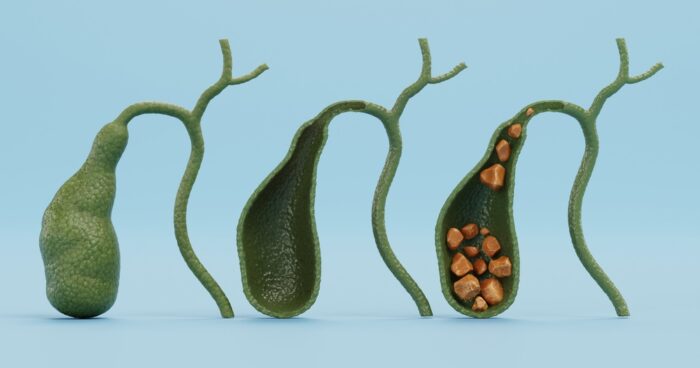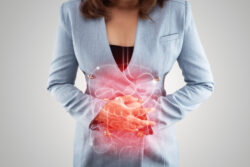How to Calm a Gallbladder Attack
Gallbladders are small organs that store bile, which is later used to help you digest food. However, like every other organ in your body, your gallbladder can go bad and lead to different symptoms. Some people only feel the effects mildly, whereas others may experience a full attack.

Depending on the circumstances, you may need to follow a treatment plan to prevent attacks from happening rather than undergoing surgery. Let’s explore how to recognize the symptoms of an attack along with how to calm a gallbladder attack so that you can feel better in the long run.
Symptoms of a Bad Gallbladder
The role of the gallbladder is to store and then release bile into your digestive tract. Once it does, it will begin breaking down the fat that passes through your intestines. This bile delivery into your small digestive system will also help your body with nutrients and vitamins, passing them into your bloodstream.
When any of these processes get interrupted, you may start experiencing a series of symptoms. The first thing you will usually notice is pain in your upper right abdomen, which is often caused by inflammation. Aside from the pain, other symptoms may include:
- Fever
- Nausea
- Vomiting
- Dark urine
- Diarrhea
If your symptoms are bad to the point where they affect your lifestyle, Dr. Moore may suggest gallbladder surgery. However, since the gallbladder plays a fairly important role, he may suggest different treatment methods or lifestyle changes to calm your overactive gallbladder.

How to Calm a Gallbladder Attack
A gallbladder attack can make you want to curl up in a fetal position, refusing to move because of the pain. Gallstone pain can be quite persistent, sometimes even after surgical treatment. This is why you need to learn how to calm a gallbladder attack, allowing you to eventually move on with your daily routine. Here are some ways for you to do so:
1. Heated Compresses
By applying heat to your pain point, you can relieve the pain caused by your gallbladder. Consider using a warm compress, such as a heating pad. Keep the compress there for about 20 minutes and then remove it. Repeat as necessary until the pain goes away, but make sure not to apply the hot compress directly on the skin.
2. Dandelion
As surprising as it may seem, the small and innocent dandelion can be a very powerful ally in the fight against gallbladder issues. Studies have shown that dandelions have an anti-inflammatory effect and that they can relieve pain related to various stomach issues. So, a cup of dandelion tea can help calm your gallbladder attack.
3. Magnesium
Magnesium has been a strong partner in keeping us healthy, and this applies to gallbladder issues as well. When your body is lower on magnesium, the chances of gallstone formation are higher. By getting a healthy intake of magnesium, the risk of developing gallstones becomes lower.
It’s recommended that you take magnesium every day (or as recommended by your doctor) to help prevent an attack. Magnesium comes in pill form or liquid form, and discussing the dosage and means of getting this supplement should be discussed with Dr. Moore during your appointment.
The Bottom Line
Gallbladder attacks can be painful enough to cause significant disruptions in your life, which is why you should know how to reduce or curb that pain when it happens. Certain dietary changes and a healthy lifestyle can help, but you can also use natural remedies. Make sure to set up an appointment with Dr. Patrick Moore first to make sure surgery isn’t needed.
For more information about gallbladders and the problems they may cause, you can contact Dr. Patrick Moore at 951-477-5700. He will gladly provide you with all the information that you need.




